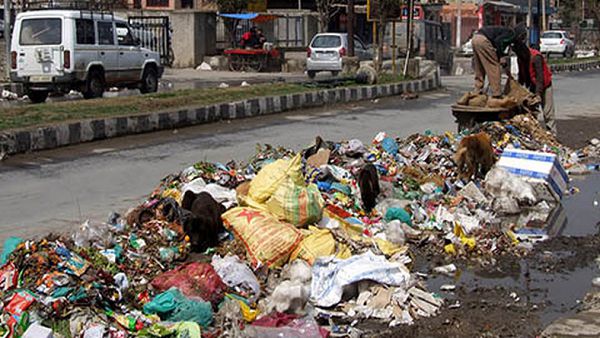
Address sanitation challenges facing Accra Rehabilitation Centre
Goal Six of the Sustainable Development Goals (SDGs) is to ensure access to adequate and equitable sanitation and hygiene for all by 2030.
It is also targeted at improving water quality by reducing pollution, eliminating dumping and minimising the release of hazardous chemicals and materials; halving the proportion of untreated wastewater and substantially increasing recycling and safe reuse globally.
The government, in an effort to ensure good sanitation aimed at achieving these goals, has established a Ministry of Sanitation and Water Resources.
These initiatives and many are on the right path to ensuring a healthy environment without which there will be many repercussions for the country and its citizens.
There are over 20 million people who are reported to be at risk of developing cholera in Ghana. Since the re-emergence of the disease in the 1970s from the seventh epidemic, Ghana has suffered several outbreaks with the most significant one in 1999 during which over 9,000 cases and 250 deaths were reported.
To achieve the SDGs (also known as Global Goals) especially on water and sanitation, by 2030 requires the active support and cooperation of all.
It is in this vein that the Daily Graphic finds it disturbing that one of the main sewage systems at the Accra Rehabilitation Centre at the heart of the city has burst, spilling human excreta on the compound.
The situation is reported to have resulted in a foul smell with flies hovering around the centre (see story on page 26).
The Manager of the Centre, Mr Churchill Darlington, attributed the worrying situation to the unavailability of funds to address the situation permanently.
In Mr Darlington’s view, “this development may require a major engineering work to fix as the main pipe which connects the cesspit may be greatly affected”.
This unfortunate situation, which has a dire consequence on the citizens, has persisted for two months with no solution readily available.
The centre is reported to have been housing important facilities such as a school, an eye clinic, tailoring shop, among other offices. Besides, the centre shares a wall with a hospital, churches and government and non-governmental institutions. Therefore, the role of the institution cannot be downplayed.
Aside from the health implications, the situation is also at variance with President Nana Addo Dankwa Akufo-Addo’s vision to make Accra the cleanest city in Africa. The consequent or debilitating effect of this worrying development on the state and the people will be dire if immediate action is not taken to fix the broken sewage.
That is why it is unacceptable for us to look on as the problem persists.
The considered view of the Daily Graphic, therefore, is that everything must be done immediately by all to remedy the situation lest it gets out of hand. We note the constant caution by the Ministry of Health and the Ghana Health Service that a single incident of cholera is considered an epidemic and admonish that we must not look on for this to result in the contraction of even a single case.
In this regard, we appeal to all stakeholders and well-meaning Ghanaians, especially the Klottey Korle Municipal Assembly under whose jurisdiction the issue falls, the Ministries of Health and Sanitation and Water Resources and the Ghana Health Service to address this challenge within the shortest possible time.
A stitch in time they say saves nine, and we must act with dispatch to deal with the problem facing the Accra Rehabilitation Centre which has the high potential to affect more people.
